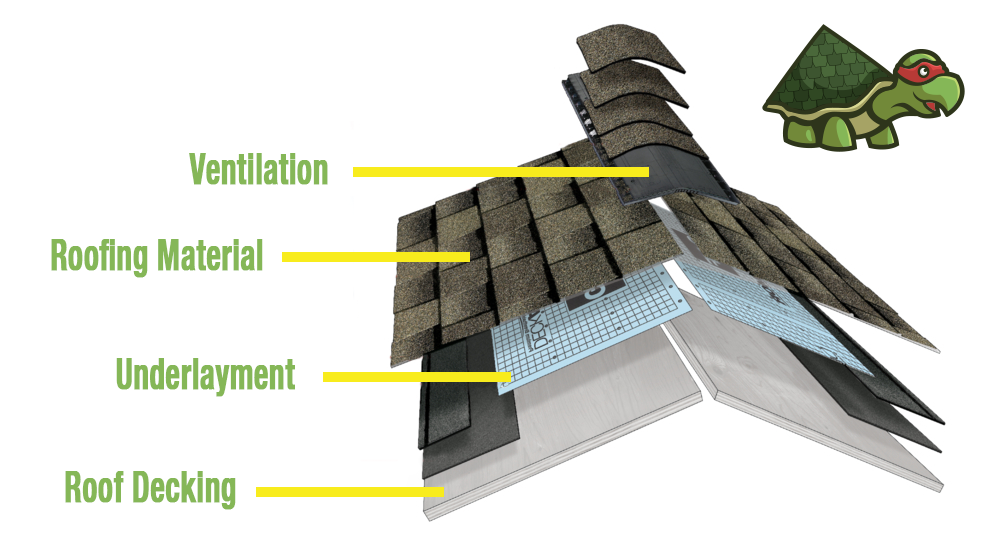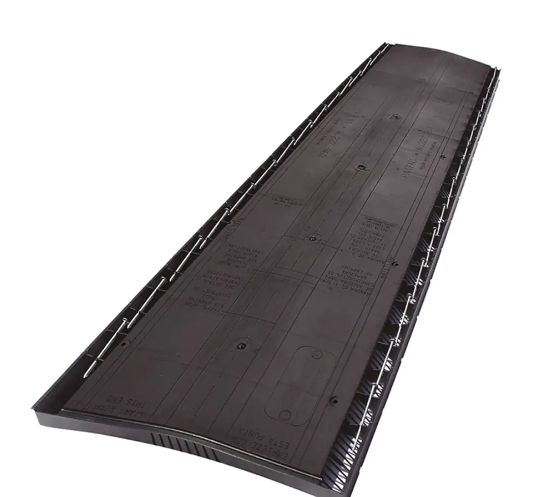Note: This article is sponsored by Roofing Turtle, your trusted GAF Certified roofing contractor in Bastrop, Texas, specializing in the installation of traditional asphalt shingles, metal roofs, and synthetic roofs.
When it comes to ensuring a well-ventilated roofing system, ridge vents play a crucial role. As a homeowner in Bastrop, Texas, understanding the purpose and benefits of ridge vents can help you make informed decisions about your roofing needs. In this article, we will explore the significance of ridge vents, how they contribute to a healthy home environment, and why Roofing Turtle is the go-to roofing contractor in Bastrop and the surrounding areas.

What is a Ridge Vent?
A ridge vent is a ventilation system installed along the peak of a roof, allowing for the continuous escape of hot air and moisture from the attic or roof space. It consists of a narrow, elongated opening that runs horizontally along the ridge, effectively allowing for air circulation.
The Purpose and Benefits of Ridge Vents:
Improved Ventilation: Ridge vents create an efficient pathway for hot air to escape from the attic, preventing it from becoming trapped and causing damage to the roof structure. Proper ventilation helps regulate temperatures and reduce the strain on cooling systems, leading to energy savings.
Moisture Control: By facilitating the airflow, ridge vents aid in moisture control. They help prevent the buildup of condensation, reducing the risk of mold, mildew, and rot in the attic and roof structure.
Extended Roof Lifespan: Proper ventilation through ridge vents helps maintain more stable temperatures, reducing thermal stress on the roofing materials. This extends the lifespan of the roof and minimizes the need for premature repairs or replacements.

When are Ridge Vents Needed?
Ridge vents are generally recommended for sloped roofs, where the ridge serves as a natural high point for the escape of hot air. However, not every roof requires a ridge vent. Factors such as roof design, climate, and attic space should be taken into consideration. Consulting with Roofing Turtle’s experienced professionals will help determine if ridge vents are suitable for your specific roofing needs.
When Should Ridge Vents Not Be Used?
While ridge vents offer numerous benefits, there are situations where they may not be appropriate. Some instances include:
Low Roof Pitch: If your roof has a low pitch, the effectiveness of ridge vents may be limited. In such cases, alternative ventilation solutions should be explored.
Inadequate Intake Ventilation: For ridge vents to function optimally, proper intake ventilation is crucial. Without sufficient intake vents, ridge vents alone cannot provide effective airflow. Our team at Roofing Turtle can assess your attic’s ventilation needs and recommend the appropriate combination of intake and exhaust vents for your roof.
The Disadvantages of Roof Ridge Vents:
While ridge vents offer significant advantages, it is important to be aware of their limitations. Some potential disadvantages include:
Dependence on Wind: Ridge vents rely on wind to create a pressure difference for airflow. In areas with consistently low wind conditions, the effectiveness of ridge vents may be reduced.
Snow Accumulation: In regions prone to heavy snowfall, ridge vents can potentially become blocked, inhibiting proper ventilation. Proper insulation and snow guards can help mitigate this issue.
Assess Ridge Venting Solutions With Roofing Turtle
Ridge vents are a valuable component of a well-ventilated roofing system, offering benefits such as improved ventilation, moisture control, and an extended roof lifespan. As a trusted GAF Certified contractor in Bastrop, Texas, Roofing Turtle has the expertise to assess your roofing needs and provide reliable installation services. Whether you require traditional asphalt shingles, metal roofs, or synthetic roofs, our team is dedicated to delivering exceptional results. Contact Roofing Turtle today to schedule a consultation and experience our commitment to quality craftsmanship and customer satisfaction.
Disclaimer: The information provided in this article is based on general knowledge and may vary depending on specific roofing conditions. It is always recommended to consult with a professional roofing contractor for accurate advice and guidance.
Contact Roofing Turtle by calling 1-833-688-7853 or get the process started by filling out some basic info on our website.

